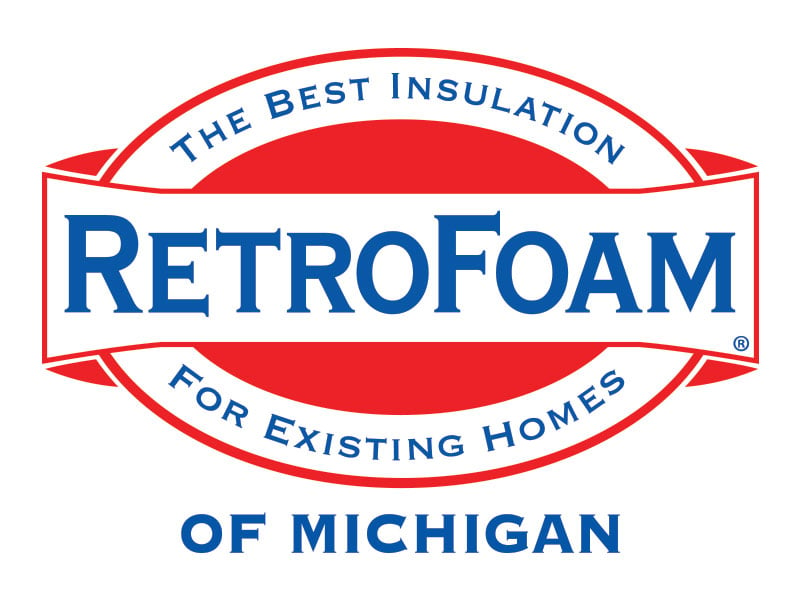How to Insulate a Wall Without Removing the Drywall
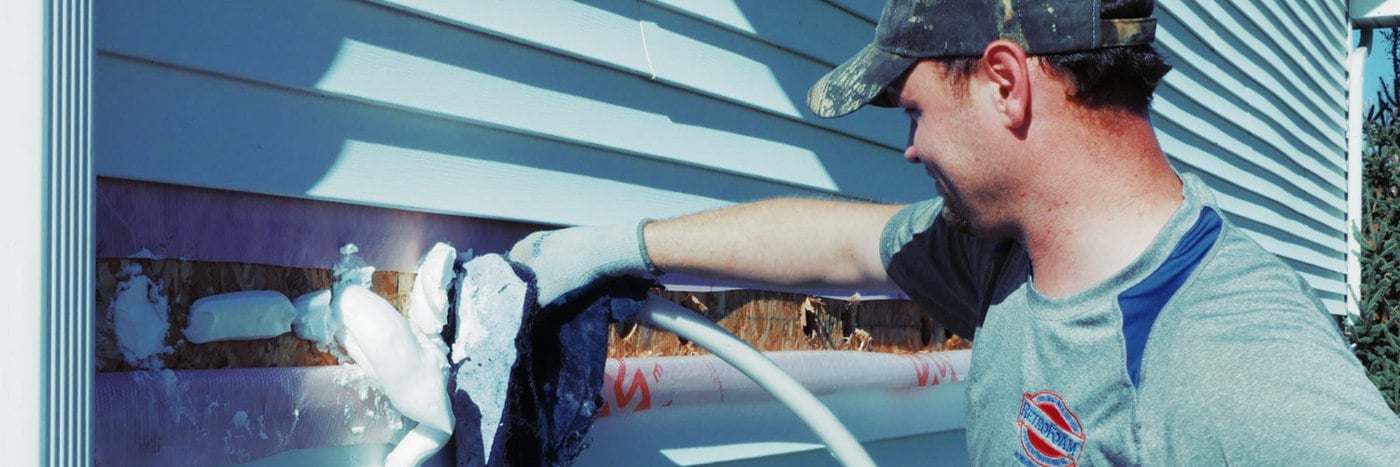

Drafts coming through the outlets and cold spots are just a few signs that it’s time to update your wall insulation, but how can it be done without removing the drywall?
The biggest fear you have about this project is that you’ll have to completely teardown your drywall and start over to correct these problems.
Fear not, because those walls can stay just how they are and don’t need to be all but demolished to make your home more comfortable.
RetroFoam of Michigan has more than 17 years of experience insulating the walls of thousands of homes. All of this experience means we understand how to insulate your exterior walls with injection foam without the need for a complete remodel.
You’re likely wondering how it’s done and as a part of our ongoing mission to educate homeowners, we’ll break down how to insulate walls without taking down drywall.
How to Add Insulation to Walls
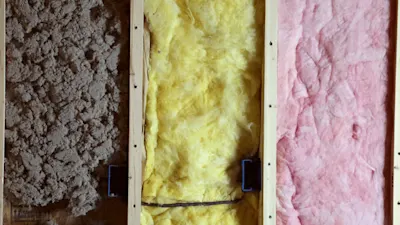
When you think about insulating your exterior walls when you think of how the installation process works with traditional insulation like fiberglass or certain kinds of cellulose.
In these cases, you would need to either plan your new insulation around a remodel, or bite the bullet and just tear it all out.
Let’s take a real brief look at what that installation looks like.
For fiberglass, the drywall would need to be removed from all of the exterior walls that you plan to insulation so the stud cavities are exposed. Once that is complete, the fiberglass batts can be installed into those cavities and stapled into place.
For wet spray cellulose, the installation process is similar. The drywall must be removed from the exterior walls so the stud cavities are exposed. Mesh wiring is placed inside the cavity and the wet cellulose is sprayed onto it.
Now, if you’re in the middle of a remodel and still want foam insulation, you do have another option -- spray foam insulation. But if you don’t have any plans in your future to tear those walls down, injection foam can be done without the need to remove the drywall.
How to Install Insulation in Walls Without Removing the Drywall
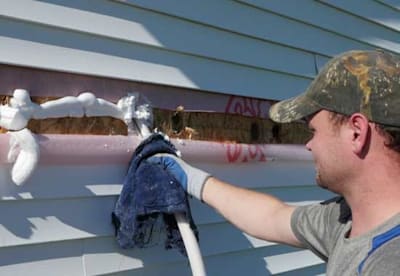
Injection foam insulation is the answer to insulating walls without removing drywall.
There are several types of injection foam available out there, including the RetroFoam product we use. These materials don’t require the drywall in your home to be taken down.
The best thing about injection foam insulation in this scenario is that it can be done outside and the installation process tends to be quick and easy.
The installation process can change depending on the type of siding your home has.
Let’s take a brief look at the different siding types and how they affect injection foam insulation installation.
Vinyl and Aluminum Siding
For homes with vinyl or aluminum siding, a row of siding around the perimeter of the home is removed allowing access to the sheathing.
Holes are then drilled into each stud cavity and the foam is then injected into each of those holes. The holes are then plugged and the siding is replaced.
Brick Exterior
Homes with brick exterior have a slightly different process.
Small holes are drilled into the mortar between the bricks into each stud cavity starting at the top, then one in the middle, and finally one at the bottom. This is done to ensure the wall cavity is completely filled with foam.
Once the foam has been injected, the holes are filled with a standard gray mortar that is mixed on-site.
Wood Siding
Wood is the hardest siding material to work with.
If the siding can be easily removed, the same process for vinyl and aluminum siding is used. But if the wood can’t be removed, then holes must be drilled through the wood siding to inject the foam.
Once the foam has been injected, then wooden plugs are used to fill those holes.
With all of these siding types, the work can be done from the outside with little hassle to the homeowner. A good contractor will even make sure the house looks just like it did before the work began.
The only work the homeowner will need to do is remove any photos or knick-knacks from the walls that could fall off due to the vibrations from the drill.
Another Way to Insulate Walls Without Taking Down Drywall
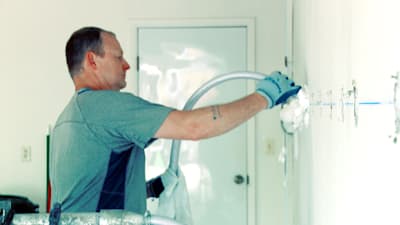
Adding injection foam insulation to your home doesn’t mean you’ll have to do an entire remodel, but what happens if you don’t want someone drilling into your wood siding?
We still got you covered.
You can install injection foam insulation from the inside of your home. Now there is some drilling that needs to take place, just like installing from the outside and there is a mess.
The good news is that a good contractor will make sure everything in your home is covered and that they clean up the mess before they leave. They will also plug the holes and put a rough patch of drywall mud over them.
The only work left to the homeowner after the installation is to sand the mud and paint over it.
And that’s that! If you want to learn more about foam insulation or maybe even broaden your educational scope and read up on spray foam in other areas of your home, check out the Learning Center on our website.
Related Articles
Installing RetroFoam into Exterior Walls with Different Siding Types
Installing Injectable Foam Insulation for Existing Homes from the Inside
How Air Sealing Insulation in Your Home Works Like Your Airtight Cooler
Save
About Amanda Emery
Amanda previously has worked as a breaking news and crime reporter, TV news producer, and editor in Flint and Detroit. Throughout her career as a journalist, she has won several awards from The Society of Professional Journalists - Detroit Chapter and the Michigan Press Association. As part of the RetroFoam of Michigan family, Amanda uses her experience as a journalist to write content that will help educate homeowners on the benefits of foam insulation. When Amanda isn’t writing, she’s spending time with her husband and rescued huskies. She also loves knitting, making art, cooking, and hosting dinner and a movie night for friends and family.
